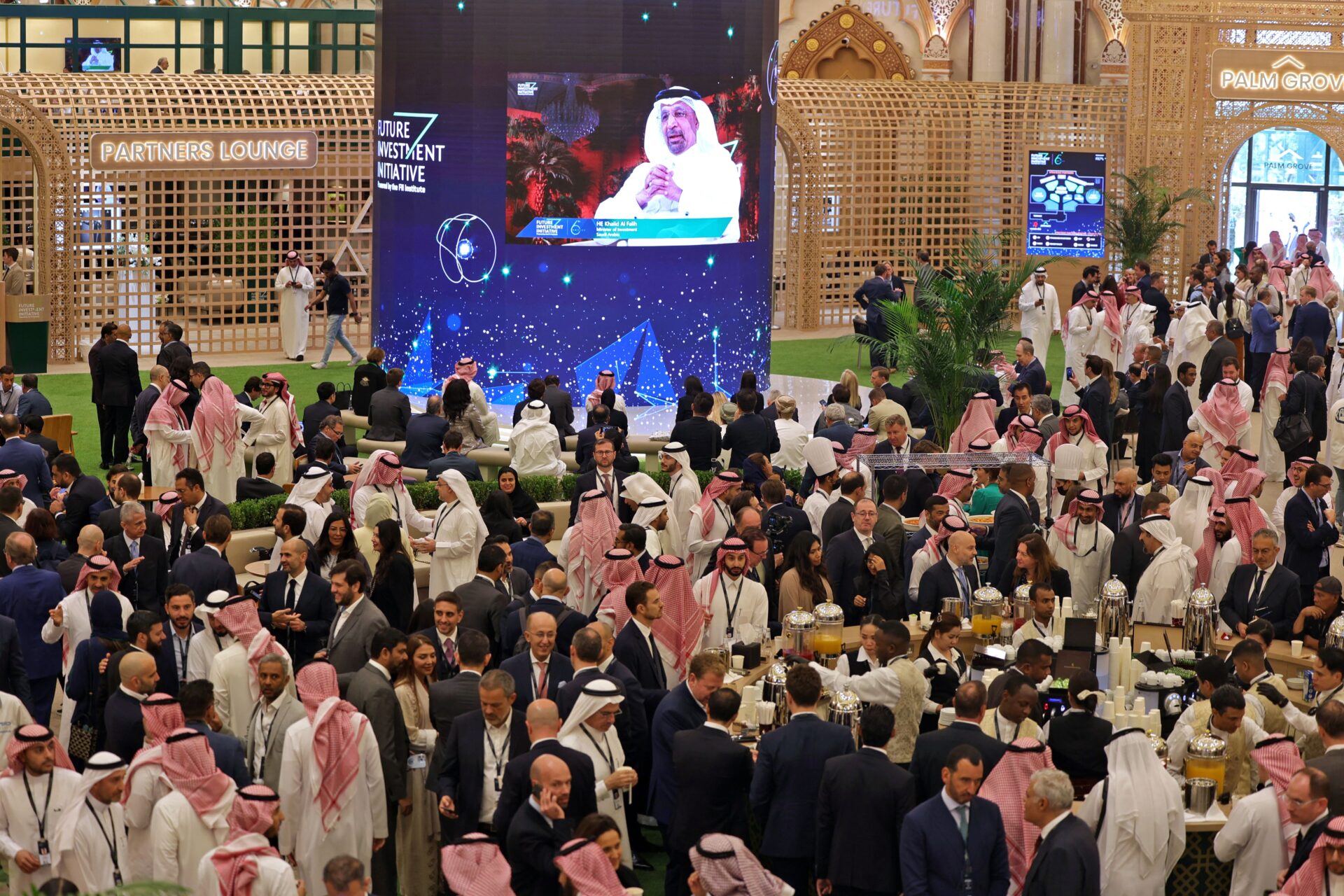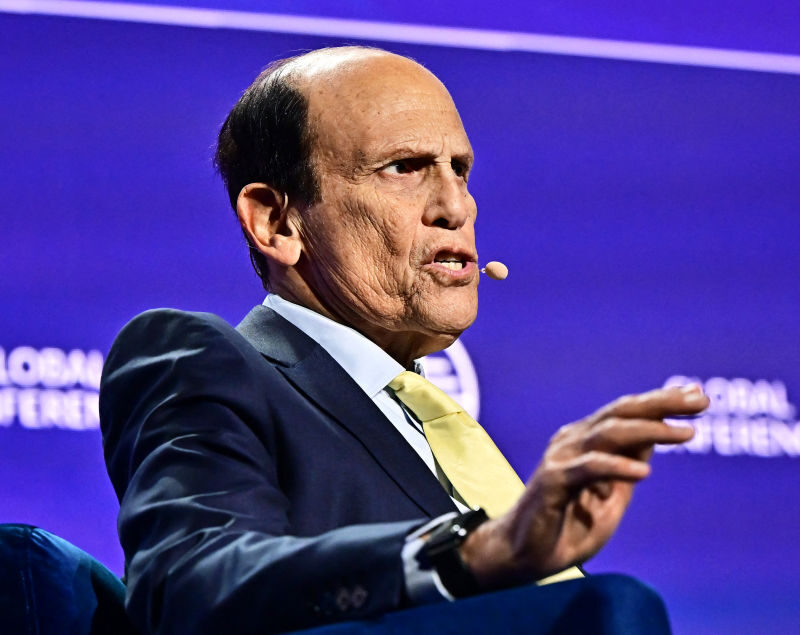
(FAYEZ NURELDINE/AFP via Getty Images)
Plunge in venture capital funding threatens prospects for Gulf startups
Economic uncertainty has many looking to high-wattage events like the Future Investment Initiative in Riyadh and the Cop28 climate conference to stoke investor interest
ABU DHABI, United Arab Emirates – Philip Bahoshy has spent more time than usual in the last few weeks trying to calm Gulf investors, startup founders and government ministers who are alarmed by the slowdown in venture capital funding.
As investment plunged globally in the first half of 2023, the chief executive of Magnitt, a Dubai-based tracker of VC data, finds himself now in a classic example of “don’t shoot the messenger.”
Venture activity in the Middle East and North Africa faced a significant decline year-on-year, posting a total of $1.1 billion in funds raised across 193 deals: a 41% drop in funding and a 64% decline in the number of transactions.
“This is the first time I actually did a road show to meet ministers and our key clients because I wanted to make sure that people understood the data, which is not reflecting positively,” Bahoshy told The Circuit.
While the drop mirrors global trends – higher interest rates and fluctuating capital markets are muting investor appetite worldwide – the calendar didn’t help.
The second quarter exhibited a more pronounced slowdown, exacerbated by the holy month of Ramadan and two Muslim Eid holidays that then transitioned to the dog days of summer, both typically less active times for the region, Bahoshy noted.
Three large deals have accounted for more than half of the funds raised so far this year. Saudi Arabia’s gifting company Floward and grocery delivery service Nana raised $156 million and $133 million, respectively, in Series C rounds. Egypt-based e-commerce platform Halan raised $260 million in equity financing.
Late-stage rounds, which were once dominated by international funds, are now being led by regional investors as outside players retrench.
The number of investors participating in the MENA region’s VC ecosystem fell by 55% – from 353 investors in the first half of 2022 to 159 in the same period this year – according to Magnitt. Only a third came from outside the region.
In Israel, which has the world’s highest number of startups per capita, companies raised $3.7 billion in the first six months of 2023, a 68% drop from the same period last year and the lowest amount of technology investment at the midyear point since 2018.
Several years ago, big names like Sequoia Capital, SoftBank, Naspers and Tiger Global were making plays in the region.
“We [now] see an alarming gap in capital,” Luca Barbi, chief operating officer of STV, an active growth stage VC fund with Saudi founders, told The Circuit.
“Those [international] players are not active anymore in the Middle East because the context now is more challenging… and they’re now focusing more on their core markets,” he said, leaving a gap in growth-stage funding.
While there is a healthy pipeline of growth-stage companies, a number of which are reporting $100 million or more in revenues and some approaching break-even, Barbi said there is a shortage of “credible investors supporting them to go further.”
For much of 2023, a prevailing narrative has been that the greatest fundraising opportunities are in the Gulf.
Entrepreneurs and investors from the West, including Adam Neumann, Marc Andreessen and Nelson Peltz, have been vocal in their support for the economic transformations underway in Saudi Arabia and the UAE in particular, underpinned by the countries’ sovereign wealth funds.
But to raise funds in the Gulf now means a certain percentage needs to be reinvested back into those local markets, Bahoshy said, a reality that may be slowing activity.
“I think that the sovereigns are right at the beginning to say, if you want to come and take our dry powder, the requirements will be that a certain percentage of that needs to be deployed back into our local markets,” Bahoshy said.
“That is a mandate that many of these people that are coming here aren’t necessarily comfortable with doing yet.”
As the summer wanes, attention will eventually turn to the high-wattage international events being hosted in the region.
Gitex, Dubai’s major technology conference, Riyadh’s Future Investment Initiative and the United Nations COP28 climate conference, hosted by the UAE, are all coming up in the fourth quarter.
Each offers a chance to revive the narrative that the region is on the move, and stimulate investor appetites.
“[If] people start deploying later in the year, the picture might change quite rapidly,” Bahoshy said. For now, that appears unlikely.
Arjun Vir Singh, a financial services consultant who specializes in fintechs with a focus on the Gulf, expected the drop-off in investment to be much worse, with farther reaching impacts.
“I was expecting greater blood in the street,” he told The Circuit. “At the same time, I don’t know how businesses are staying afloat.”
He predicted an influx in mergers and acquisitions in the months ahead.
Barbi, of STV, expects more MENA startups to sell shares on the Saudi Exchange. Those that survive this downturn, “will be strong enough to stand alone,” he said.


